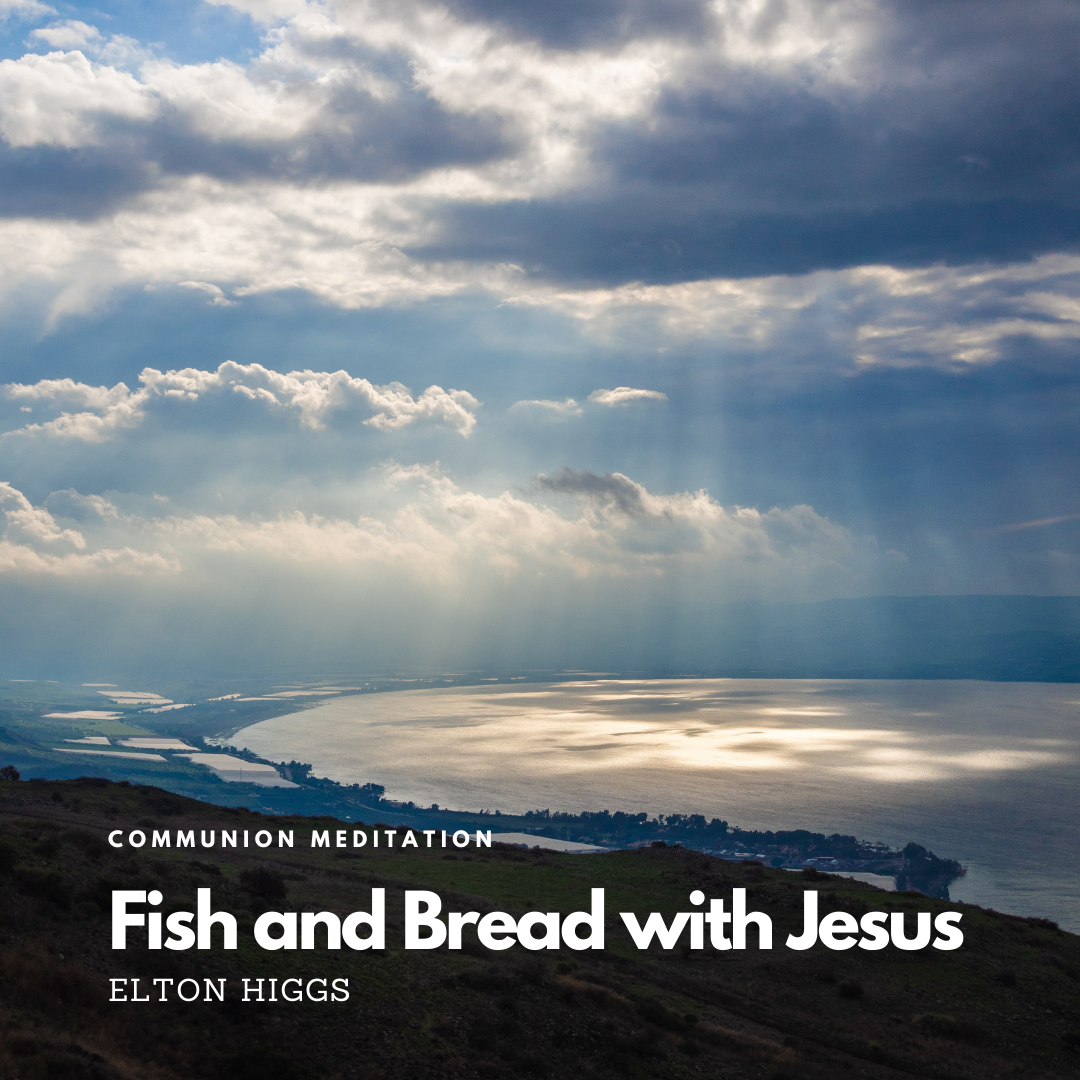Lord’s Supper Meditation – Fish and Bread with Jesus
/A Twilight Musing
It is noteworthy that the last days of Jesus on earth, from just before his death to his ascension into heaven, are punctuated by eating. There is first of all, of course, our Lord's last Passover meal with his disciples, only the day before his crucifixion, and it was the source of the communion that we are observing now. On the evening of his resurrection, he appeared to two men on the road to Emmaus and was persuaded by them to go into their house and eat with them. As Jesus broke the bread and began to give it to them, they realized who he was. During a subsequent appearance to his disciples, he asked to be given something to eat, for they thought he was a ghost (Lk. 24:36-42). And in an amazing episode on the shore of Lake Galilee (Jn. 21:1-1 4), his disciples, who had been fishing on the lake unsuccessfully all night, saw and heard in the morning someone on the shore telling them to cast their nets on the other side of the boat if they wanted to catch some fish. As their nets filled to overflowing, they knew it must be the Master on shore, and as they pulled in the catch, they heard him say, "Come and have breakfast."
Can we take instruction from all of these examples of Jesus sharing food with his disciples, even after he had been transformed by the resurrection? In the first place, the focus on eating as a symbol of spiritual fellowship at the Last Supper was not an isolated incident. Jesus seemed to be saying in the three recorded instances of his eating with his disciples after his resurrection that he wanted to make himself available to them in the most common circumstances of human life, and though he had no need to sustain himself with physical food, he nevertheless shared with them in their ongoing need. He reaches back to us now in our frailty, even from the Throne of his Glory, for he has been where we are and wishes to commune regularly with us in the most intimately common way.
Secondly, just as he included the fish caught by the disciples in the breakfast menu of his Lake Galilee cook-out, along with the bread and fish that he had already prepared, so he combines the divine manna of heaven with the bread we earn by the sweat of our brow, keeping us mindful that even the food we bring has been provided by him. And if we will give them to him again, he will make them food for both body and spirit.
This morning we bring to the table before us not only the elements of bread and wine, but ourselves to be consecrated and transformed by him into nourishment for Life indeed, so that even in this flesh we experience something of his resurrected body. For the bread of this simple feast is not only the body that died on the cross, but the Body in which death was conquered; and the wine is not just the life-blood he poured out, but the undying blood of the New Covenant, which both sustains us now and assures us of life everlasting with our Savior. May we eat and drink with Him now in the mixture of awe, thankfulness, and comradeship which the disciples felt in that breakfast by the Sea of Galilee with their risen Lord.
Dr. Elton Higgs was a faculty member in the English department of the University of Michigan-Dearborn from 1965-2001. Having retired from UM-D as Prof. of English in 2001, he now lives with his wife in Jackson, MI. He has published scholarly articles on Chaucer, Langland, the Pearl Poet, Shakespeare, and Milton. Recently, Dr. Higgs has self-published a collection of his poetry called Probing Eyes: Poems of a Lifetime, 1959-2019, as well as a book inspired by The Screwtape Letters, called The Ichabod Letters, available as an e-book from Moral Apologetics. (Ed.: Dr. Higgs was the most important mentor during undergrad for the creator of this website, and his influence was inestimable.





















